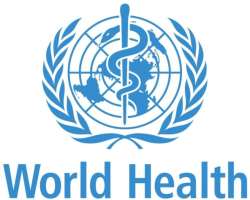How to ensure access to good quality, safe and effective medical products in the African Region

BRAZZAVILLE, Republic of the Congo, September 4, 2013/African Press Organization (APO)/ -- Every day, some patients receive treatments and use poor quality medical products which are unsafe and ineffective. The World Health Organization (WHO) describes such medical products as “substandard, spurious, falsely labelled, falsified or counterfeit'' (SSFFC).
In many countries, SSFFC medical products are sold on the streets, in street corners, in open air markets, and often alongside fruit and vegetables. People seeking medication and are unable to afford medicines from licensed outlets look for cheaper alternatives elsewhere. In some rural areas, access to medication is limited, and often supply does not meet demand, resulting in a market for unlicensed medicines.
According to WHO experts, the use of substandard and inactive ingredients, poor manufacturing practices, improper packaging, transport, and storage put people's health at risk. One of the root causes of these breakdowns in medicines quality is inadequate capacity of national medicines regulatory authorities.
How can countries in the African Region address these issues?
In a report today to Health Ministers attending the 63rd session of the WHO Regional Committee for Africa, taking place from in Brazzaville, Congo, from 2 to 6 September 2013, the WHO Regional Director for Africa, Dr Luis Sambo, proposes solutions including the establishment of an appropriate body such as a National Medicines Regulatory Authority (NMRA) to ensure that only safe, good quality and effective medical products are available in countries. This outfit should be an autonomous and full-fledged department in order to ensure its independence, transparency and accountability in decision-making.
He called on countries to adapt and use WHO-recommended guidelines that include the use of mechanisms such as the WHO “Prequalification Programme”. This mechanism ensures that diagnostics, medicines, vaccines and immunization-related equipment and devices for high burden diseases meet global standards of quality, safety and efficacy.
Referring to the challenge of outdated and inconsistent laws in some countries, Dr Sambo said: “Governments have primary responsibility for establishing a comprehensive and functional regulatory system in countries. Systematic approaches to regular assessment of the regulatory systems should be adopted to achieve the goals of the pharmaceutical sector. The legal and regulatory framework should allow effective implementation of regulatory activities.”
The shortage of qualified staff should be addressed by ensuring pre-service and in-service training. In addition, countries should collaborate with academic institutions in establishing regional centres of excellence to serve as training hubs.
On inadequate and unsustainable funding – a constant challenge facing Africa's health sector, the Regional Director proposes that countries establish budget lines and adequate funding mechanisms for medical products regulation to cover recurrent and operational costs.
Recalling the decision of African Heads of State and Government to create the single African Medicines Agency (AMA), Dr Sambo emphasized the need to accelerate its full operation to improve collaboration and strengthen the regulatory capacity of countries. He urged Regional Economic Communities to work towards harmonization of medical products regulation.
It is hoped that if the measures proposed by the Regional Director are fully implemented the region will be on the path to building strong and fully functional systems that will ensure that people can have access to good quality, safe and effective medical products to reduce cases of treatment failure, drug resistance and ultimately death.
